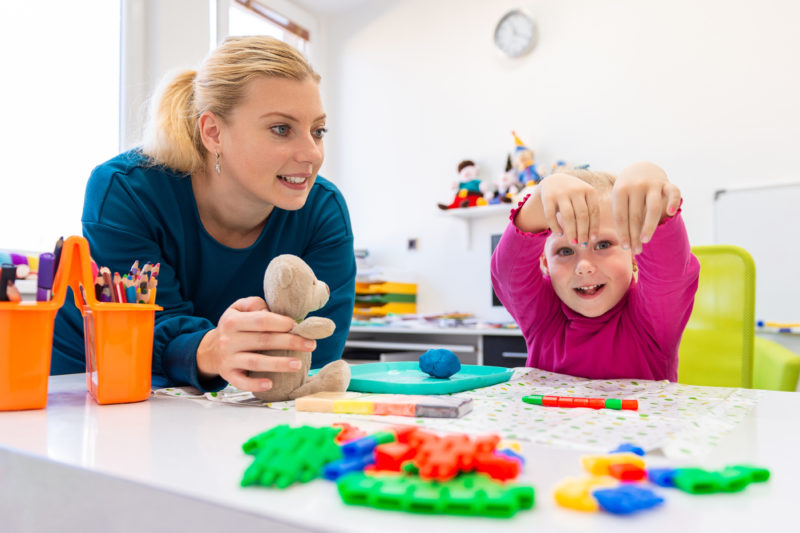1. Initial Phone Call
When you phone an Occupational Therapy practice for children, the person on the end of the line should be engaging and generally interested in how they can best help you and your child. They will take a few personal details and find out why you are looking for Occupational Therapy services for your child. They’ll ask you about what concerns you have and find out any important background information. They will then be able to guide you towards the right type of service for your child. Following that, an appointment will be set up and they will tell you about the price for the session, whether it includes a report, who will be seeing your child and the address of the clinic.
Finally, they will tell you that a follow-up email and parent questionnaire will be sent with all the details. You should finish that phone call feeling that you have had great customer service and you have made a positive step forward to help your child.
2. Initial Consultation
When you arrive at the clinic, the Occupational Therapist should introduce themselves to you and your child. They should be able to engage with your child and build rapport so that they are happy to come and play with them. Depending on the nature of the first appointment, the Occupational Therapist may conduct a series of formalised tests. They will make some general observations, play with your child and work on building up their trust. All through this, your child should be happy, engaged and willing to participate. At the end of this first appointment, you should leave with a clear plan in your mind about the outcomes of the session, what the therapy goals are for your child, what the future plans are, and what you need to work on at home. The therapy goals for your child will be set in collaboration with you.
3. Ongoing Therapy
For therapy sessions, the Occupational Therapist will either have you sit in or wait outside the therapy session depending on what best suits your child’s needs and what practice model they work under. If you are sitting in for the sessions, you should be encouraged to participate in the session to help your child have fun and be engaged and to learn how to facilitate similar experiences at home. If you don’t sit in for the session, the Occupational Therapist will catch up with you after the session to tell you about your child’s progress and what has been worked on in the session. Suggestions for activities to work on at home will also be provided.
4. Total Care
A child’s Occupational Therapy session is a small window in their week, so it’s important your child’s Occupational therapist gains a view of what their performance is like across all areas of their life. An important person they should be in contact with is your child’s teacher to see how they are performing at school. The teacher’s feedback provides insight into what skills need to be addressed in therapy sessions, then carried across into the school environment. Your Occupational Therapist may want to do a school visit to meet with the teacher and collaborate on the best way to help your child at school.
If your child is receiving services from other health professionals it is important that your child’s Occupational Therapist liaises with them to find out what they should be reinforcing in their therapy sessions. Eg. The Speech Pathologist could tell them how many step instructions they could practise following in a gross motor sequence. If your child is having difficulty with their siblings, the Occupational Therapist may suggest some group sessions with the siblings so they can work on building their social skills and working together as a team.
5. Availability
Whether your child attends OT sessions once a week, or once a month your Occupational Therapist should be available by phone or email between appointments. You may need to contact them about what is happening at school, for help with navigating the NDIS or gaining some advice about therapy equipment for your child.
If you’re looking for Occupational Therapy services for your child, please give us a call on 02 9913 3823.



